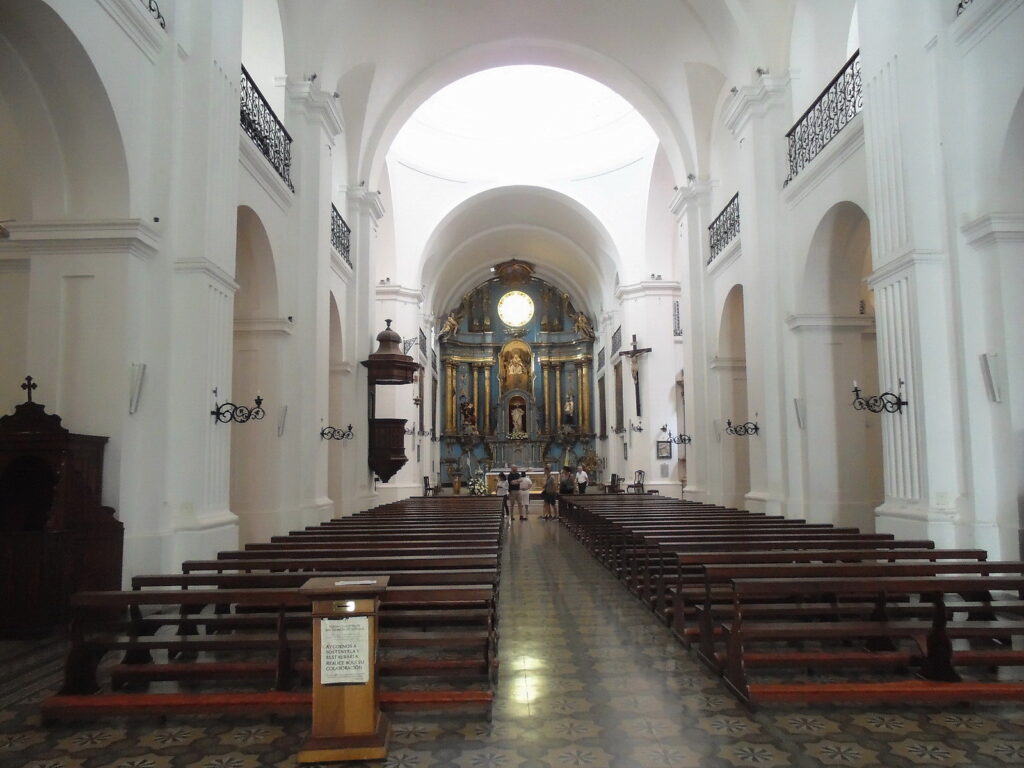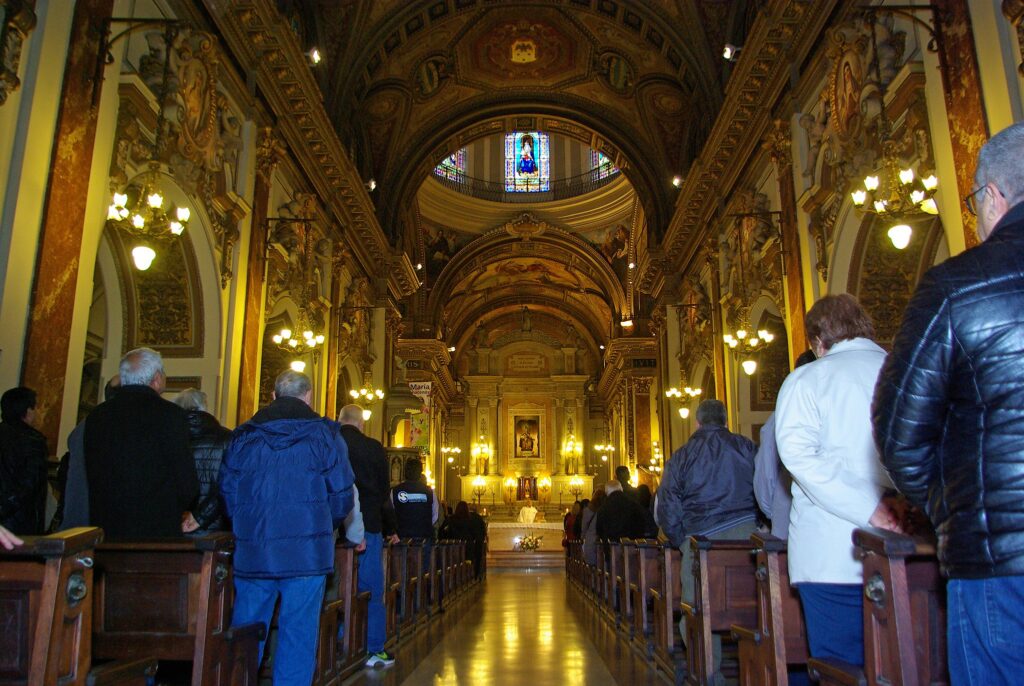Even without a definitive figure for the Catholic population in Argentina, all estimates agree that this religion has the largest number of believers. The Catholic faith has a preferential legal status and a key influence in Argentine society, including parishes and schools that enjoy a certain degree of autonomy, as well as subsidies from the State.
Although Argentina does not declare any religion as official or State religion, it is clear that Catholicism has been the most important religion for centuries. Statistics show an irregular trend in the number of practicing Catholics, which does not take away from its hegemonic character as a popular creed.
Catholicism in Buenos Aires: why is it the most important religion in the city?
What is the Official Religion of Argentina?
Although Argentina does not have an official state religion, its constitution grants a preferential legal status to the Roman Catholic Church.
It’s important to note that the Argentine constitution and laws establish freedom of religion and the right of the people to freely practice their faith. This context helps explain the unique relationship between the State and the Catholic Church. While the Supreme Court has declared that Catholicism is not the official or state religion, the government provides the Catholic Church with tax-free subsidies, institutional privileges, considerable autonomy in parochial schools, and preferential licenses for radio frequencies.
Additionally, Argentine law prohibits religious discrimination, with provisions for compensation or imprisonment for those found guilty. In some cases, religious discrimination can be an aggravating factor in other crimes, leading to harsher penalties.
How Many Catholics Are There in Buenos Aires?
Catholics make up 68.7% of the population in Buenos Aires. Meanwhile, 6.8% of the population identifies as non-Catholic Christians, mainly Pentecostals. However, more than half of the Catholics in Buenos Aires do not regularly attend Mass.
Other Religions in Buenos Aires
According to data from CONICET and other studies, 15.3% of Buenos Aires’ population identifies as Protestant, 18.9% as non-religious, and 1.4% as Jehovah’s Witnesses or members of The Church of Jesus Christ. A small portion, 1.2%, practices other religions, such as Islam and Judaism.

Data That Reflects the Incidence of Catholicism in Buenos Aires
Catholic Schools
There are around 300 Catholic schools in Buenos Aires, some managed by the Archdiocese of Buenos Aires and others by various Catholic congregations. These schools receive financial support from the state, operating as private educational institutions.
Catholic Churches
The number of Catholic churches in Buenos Aires exceeds 200, not including those in the Province of Buenos Aires. These Catholic sanctuaries are spread throughout almost every neighborhood in the city.
What is the Oldest Church in Buenos Aires?
The oldest church in Buenos Aires is the Church of San Ignacio de Loyola, located in the historic Monserrat neighborhood. Built by Jesuits between 1686 and 1722, it served as the city’s cathedral at the end of the 18th century and as a military barracks during the resistance to the British invasion in 1806.
In 1942, the church was declared a National Historic Monument.
The Influence of the First Argentine and South American Pope
The election of Jorge Mario Bergoglio (Pope Francis) as the head of the Vatican significantly impacted the Catholic faith in Argentina. Until 2013, the Church had been working to regain followers and strengthen Catholic faith across the country. The election of the first Argentine (and Latin American) Pope helped to solidify the faith among both practicing and non-practicing Catholics.
Argentine Saints and Blesseds
Argentina has five native saints canonized by the Vatican: Héctor Valdivielso (1999), Saint José Gabriel del Rosario Brochero (2016), Saint Nazaria Ignacia of Saint Teresa of Jesus March (2018), Saint Artemides Joaquin Desidero Maria Zatti (2022), and Maria Antonia de San José (2024). Additionally, Argentina has 15 blessed individuals.

Important Catholic Events
The Pilgrimage to Luján is one of the most important Catholic events in Buenos Aires. Thousands (or nearly millions) of people gather in Buenos Aires, including from other provinces, to make a pilgrimage from the Liniers neighborhood (in western Buenos Aires) to the town of Luján, where the Basilica honoring the Virgin of Luján is located.
Other significant days for Catholics in Buenos Aires include the celebrations of saints like Saint Cayetano and Saint Expedito, during which believers gather at parishes to offer prayers and thanks.
Christian calendar celebrations such as Easter, Christmas, and Pentecost also generate a strong popular response in Buenos Aires’ parishes and basilicas.
What are the approximate times of masses in churches in Buenos Aires?
In Buenos Aires, masses are celebrated every day of the week. What varies between each parish is the number of masses per day.
In some cases, masses can reach 4 celebrations a day, with the earliest being at 9 a.m. and the last at 7 p.m.


